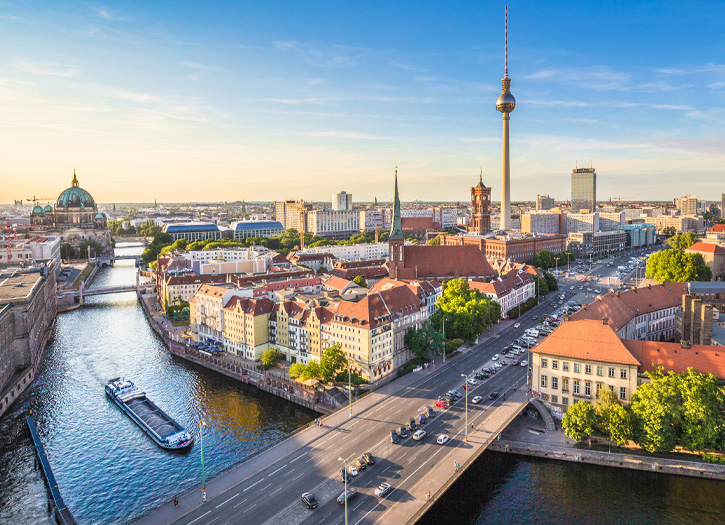The COVID-19 pandemic in Germany is part of the ongoing worldwide pandemic of coronavirus disease 2019 (COVID-19) caused by severe acute respiratory syndrome coronavirus 2 (SARS-CoV-2). On 27 January 2020, the first case in Germany was confirmed near Munich, Bavaria. The majority of cases in January and early February originated from the same automobile-parts manufacturer as the first case. On 25 and 26 February, multiple cases related to the Italian outbreak were detected in Baden-Württemberg.
The German government and several health officials stated the country was well-prepared and did not initially implement special measures to stockpile medical supplies or limit public freedom. Since 13 March, the pandemic has been managed in the protection stage as per the RKI plan, with German states mandating school and kindergarten closures, postponing academic semesters and prohibiting visits to nursing homes to protect the elderly. Two days later, borders to Austria, Denmark, France, Luxembourg and Switzerland were closed.
By 22 March, curfews were imposed in six German states while other states prohibited physical contact with more than one person from outside one’s household. In due course the measures started to result in an easing of the pandemic, with Chancellor Angela Merkel speaking on 15 April of “fragile intermediate success” that had been achieved. Gradually, and not always synchronous due to the federal system, the German states and the federal level eased restrictions and warnings, including on holiday travel to European countries that had likewise seen progress in fighting the pandemic.
As of 28 July 2020, the RKI has officially reported 206,242 cases, about 9,122 deaths and approximately 190,800 recoveries. The country’s low fatality rate, compared to fatality rates in Italy and Spain, has generated a discussion and explanations that cite the country’s higher number of tests performed, higher number of available intensive care beds with respiratory support and higher proportion of positive cases among younger people.
The first case detected in the nation’s capital of Berlin was reported on 2 March 2020. On 17 March, the government of Berlin announced plans to open a 1,000-bed hospital for COVID-19 patients on the grounds of Messe Berlin in the Westend locality of Charlottenburg-Wilmersdorf. The hospital opened on 11 May 2020. On 8 March, the count of cases in the state rose to 484. Of these, 277 were in Heinsberg. Bochum recorded its fourth case after a woman tested positive after returning from a holiday in South Tyrol, Italy. She went into quarantine at home.Düsseldorf confirmed its fourth case, a man who had contact with individuals in Heinsberg.
Germany has a common National Pandemic Plan,which describes the responsibilities and measures of the health care system actors in case of a huge epidemic. Epidemic control is executed both by the federal authorities such as Robert Koch Institute and by the German states. The German states have their own epidemic plans. In early March, the national plan was extended for the handling of the ongoing coronavirus pandemic.
In the containment stage health authorities are focusing on identifying contact persons who are put in personal quarantine and are monitored and tested. Personal quarantine is overseen by the local health agencies. By doing so, authorities are trying to keep infection chains short, leading to curtailed clusters. In the protection stage the strategy will change to using direct measures to protect vulnerable persons from becoming infected. The mitigation stage will eventually try to avoid spikes of intensive treatment in order to maintain medical services.
On 1 August, some 20,000 people protested in Berlin against the anti-pandemic measures. A large majority of participants ignored the mask and physical distancing requirements. In the late afternoon, police ordered demonstrators to leave the scene, on the grounds that organizers had failed to enforce coronavirus hygiene rules. The assembly leader was charged by police for this offence. Several local and federal politicians severely criticized the flouting of coronavirus rules, and considered the protesters’ demands to be starkly at odds with the severity of the crisis. According to a new regulation issued by Health Minister Jens Spahn that came in force on 8 August, travellers returning to Germany from designated high-risk countries are required to undergo a coronavirus test .







Add Comment